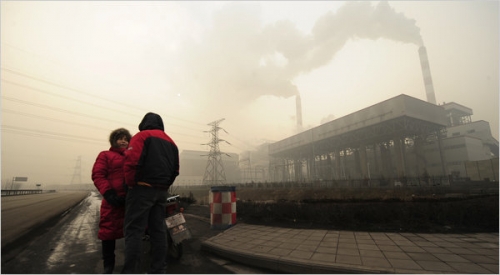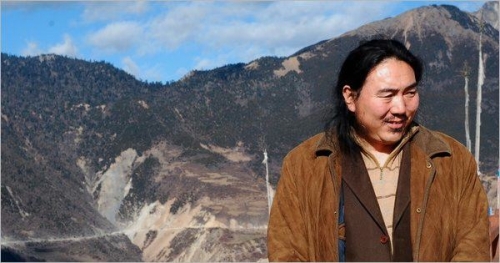
Four years ago, China overtook the US to become the world’s biggest emitter of carbon dioxide. Now International Energy Agency (IEA) has announced that China tops the list as the biggest energy consumer in the world. What does all this mean? Lots and lots of pollution. A report in yesterday’s New York Times painted a dispiriting portrait of China’s environmental problems:
In recent days, the state media have provided a grim sampling of China’s environmental woes, including a pipeline explosion that dumped thousands of gallons of oil into the Yellow Sea, reports of a copper mine whose toxic effluent killed tons of fish in Fujian Province, and revelations that dozens of children were poisoned by lead from illegal gold production in Yunnan Province. Two weeks ago, the state media reported on thousands of residents in the Guangxi Zhuang Autonomous Region who clashed with the police as they protested unregulated emissions from an aluminum plant. Ma Jun, director of the Institute of Public and Environmental Affairs in Beijing, said many of the government’s efforts to curtail pollution had been offset by the number of construction projects that spit dust into the air and the surge in private car ownership.
The IEA’s report comes hot on the heels of the high profile arrest of a Tibetan environmentalist and conservationist Karma Samdrup (pictured below). Samdrup, a Buddhist and founder of the award-winning Three Rivers Environmental Protection Group, was jailed in China on charges of robbing tombs and then dealing looted relics. Samdrup’s wife and lawyer both claim that he was falsely accused and then tortured by Chinese authorities. A recent article published in the New York Times suggests that Samdrup’s arrest is part of a crackdown on Tibetans in the wake of 2008 protests:
Human rights advocates say the prosecution of Mr. Samdrup and his brothers are part of a worrisome crackdown on Tibetan artists, intellectuals and students, among others, that has intensified since March 2008, when rioting in Tibet stunned Chinese leaders in the midst of their preparations for the Olympics in Beijing.
Some speculate that Samdrup’s arrest was a response to his defense of his two brothers, who Samdrup tried to protect from torture after they accused a local police chief of illegally hunting protected animals at a Tibetan nature reserve. Samdrup has been sentenced to 15 years in prison. According to the World Health Organization, 16 of the world’s 20 most polluted cities are in China and it is estimated that a quarter of China’s lakes, rivers, and streams are too contaminated to be used for drinking water. With a prominent conservationist in prison and energy consumption at an all time high, China’s environmental future looks grim.

Thank you for subscribing to Tricycle! As a nonprofit, we depend on readers like you to keep Buddhist teachings and practices widely available.